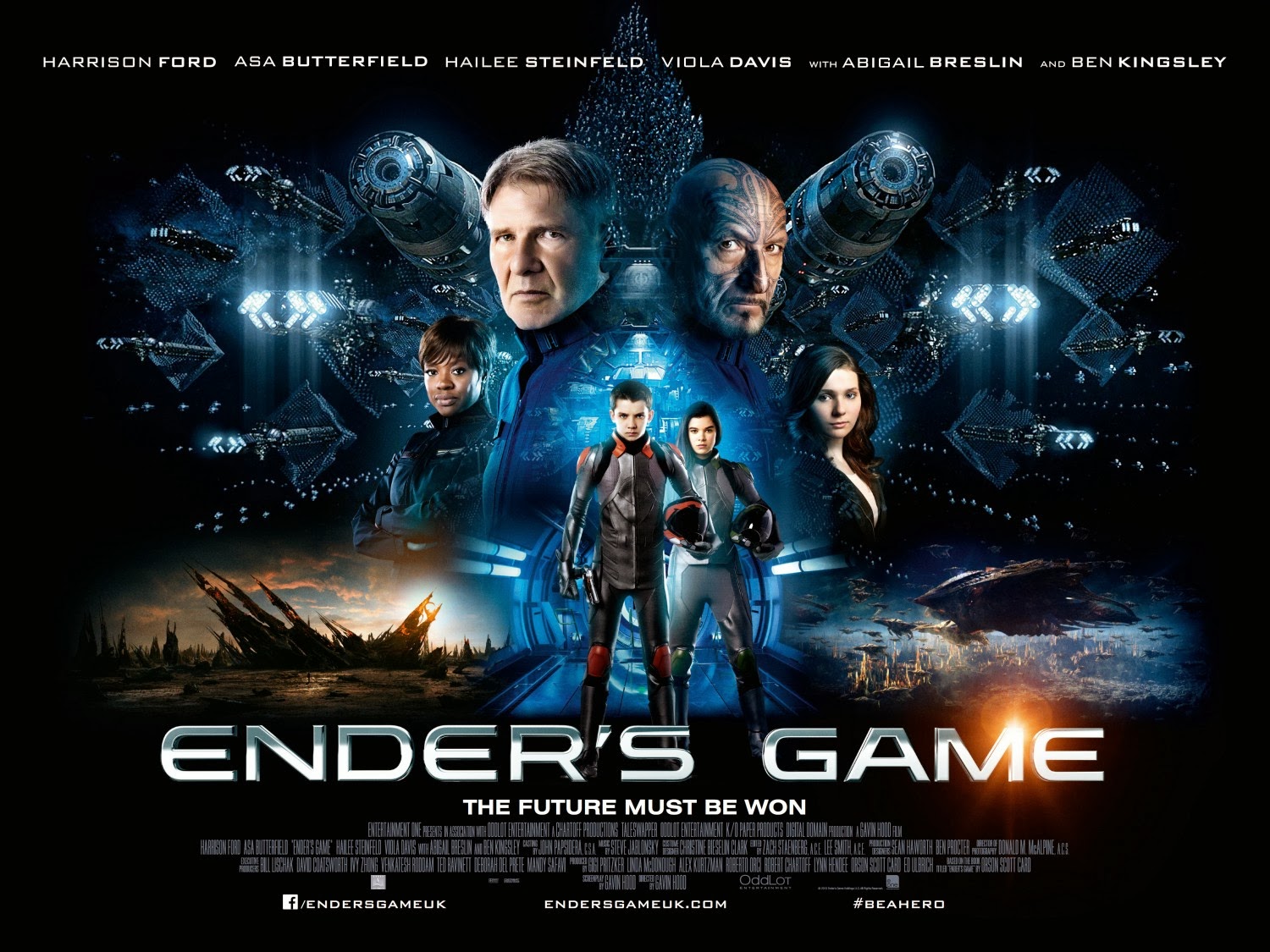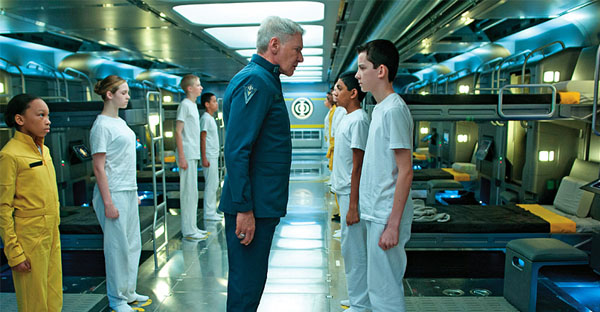Movie Review: Ender's Game
 Fifty years after a race of alien bugs attacked earth and nearly succeeded in wiping us out, the battle continues deep in space. Believing that our best hope in the war are savant children with a mind for strategy, Colonel Graff (Harrison Ford) and the International Military begin putting the brightest boys and girls through a rigorous training program designed to find one solitary savior. This savior is embodied in one Ender Wiggin (Asa Butterfield), the third child in a family of washouts who displays both the empathy of his sister Valentine (Abigail Breslin) and the violence of his brother Peter (Jimmy Pinchak). With another alien attack on the way, Ender must push himself to the edge of his abilities while learning to become the leader he is born to be in order to save the human race.
Fifty years after a race of alien bugs attacked earth and nearly succeeded in wiping us out, the battle continues deep in space. Believing that our best hope in the war are savant children with a mind for strategy, Colonel Graff (Harrison Ford) and the International Military begin putting the brightest boys and girls through a rigorous training program designed to find one solitary savior. This savior is embodied in one Ender Wiggin (Asa Butterfield), the third child in a family of washouts who displays both the empathy of his sister Valentine (Abigail Breslin) and the violence of his brother Peter (Jimmy Pinchak). With another alien attack on the way, Ender must push himself to the edge of his abilities while learning to become the leader he is born to be in order to save the human race.
Based on the 1985 literary classic of the same name, Ender's Game represents a valiant attempt to turn the unfilmable into a cohesive film and while it doesn't succeed completely, it's not the total mess it absolutely could have been. The novel is a minor masterpiece and if you haven't read it, you should, but so much of the content would never work in a major motion picture. If you're a fan of the novel, you have to know and accept going in that there are going to be significant changes in order to make this work on screen and if you can do that, Ender's Game is likely to be an enjoyable experience. While the film misses on many of the subplots and themes that make the novel so great, it still manages to pull itself together enough to be a fair if not altogether faithful adaptation.
Director and screenwriter Gavin Hood (of X-Men Origins: Wolverine fame) restructured the plot a bit in order to streamline it and make it more accessible. I would say he was successful in doing this even if this accessibility neutered the power of both the story and the main character. Ender's Game takes us (a bit hurriedly) through Ender's progression through the initial training program, his time at Battle School, and eventually his ultimate arrival to Command School. We get a sense of the dark world in which this story takes place but Hood keeps us lingering on the fringes of the darkness rather than plunging us in the way I might have liked. In the same way, Ender's strategic nature is played up while his violent side is touched upon only slightly. This probably makes Ender a more sympathetic, likable character but it also fails to give us a sense of the savagery that lives inside of this boy and moreover, the savagery of the world he is forced to live in. Ender's Game is really a socio-political commentary more than it is a piece of science fiction but in attempting to appeal to a wider audience, I'd say Hood may have gone too far and left the film with very little bite.
Complaints aside, Ender's Game is still a solid film. Ford and Butterfield play off of each other quite well, the former giving one of his best performances in a very long time. I found the moments in which these two interact to be the strongest points of the film and we get a hint of the power locked away inside this complex story. Butterfield plays Ender a bit more wooden than I would have liked but it's still an admirable portrayal. Surprisingly, Ender's Game is not an overwhelmingly FX-driven film and Hood uses the effects well. There's nothing particularly special about anything happening here but it's also not the eyesore that it really might have been. And Steve Jablonsky's score is surprisingly effective.
As far as adaptations of beloved, unfilmable novels go, Ender's Game is far better than The Great Gatsby so if nothing else, 2013 didn't completely ruin two of my favorite books of all time. It could certainly be better but I had fears of much worse and for the most part, those fears proved unnecessary. All in all, Ender's Game is a decent movie based upon a superior source material that gives it enough juice to make it worthwhile. Grade: B (Rated PG-13 for violence and edgy themes)
